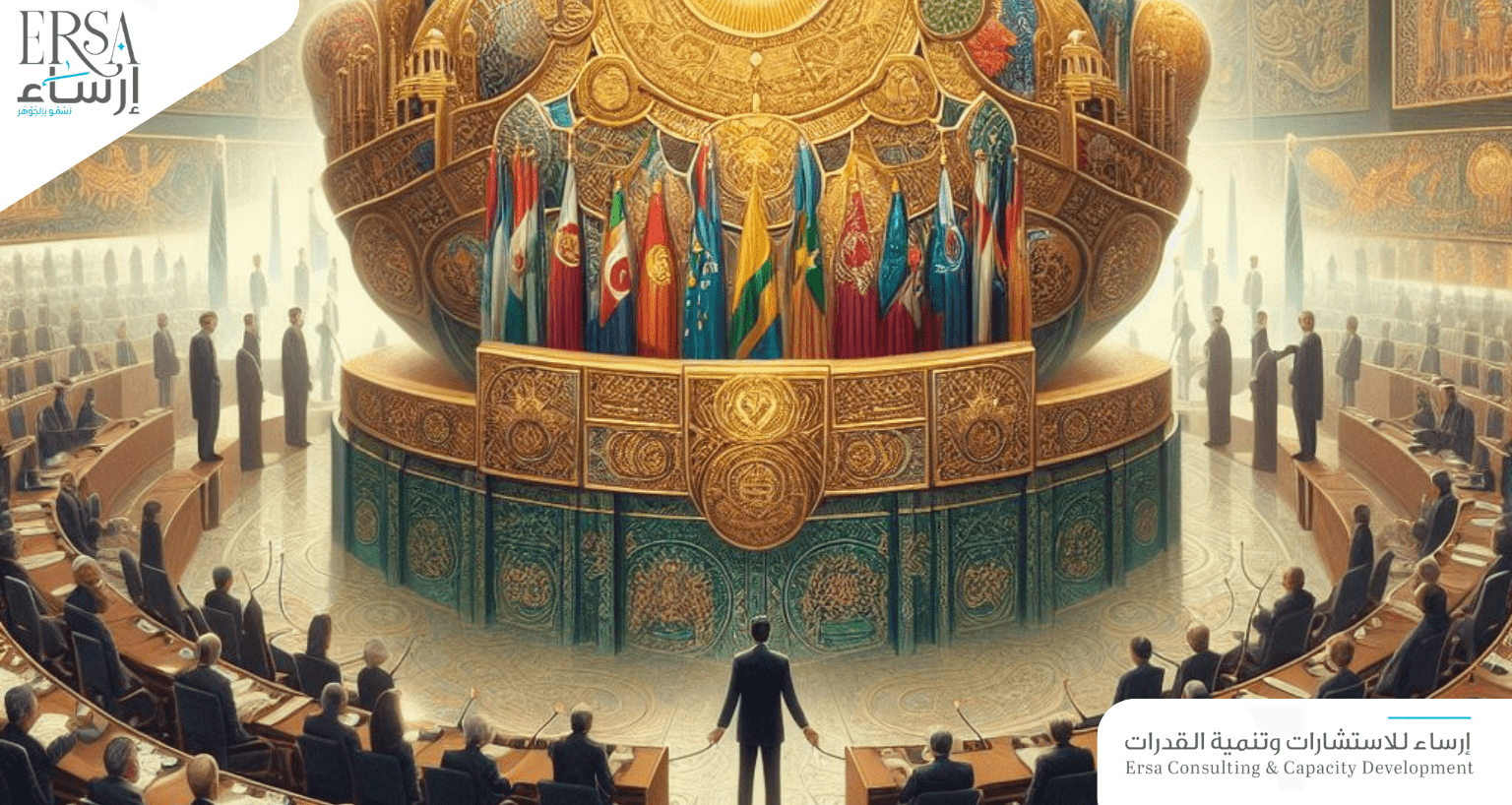Overview
The course will provide you with a comprehensive and deep understanding of the fundamental principles and practices that govern official etiquette, international protocol, and the art of ceremonies in various diplomatic and official contexts.
Participants will acquire the necessary skills to efficiently manage official events, effectively communicate in diplomatic environments, and apply protocol rules when dealing with important personalities and international guests.
The course aims to develop the ability to handle official situations with grace and professionalism, understand international customs and cultural traditions, and master the art of etiquette and cultural communication. Additionally, participants will learn how to organize and manage international events in accordance with the highest protocol standards, enabling them to enhance their professional image and improve their interactions in international and institutional relationships.
Objectives
- A comprehensive understanding of the foundations of ceremonies and international protocol.
- Developing effective communication skills and etiquette in diplomatic and official contexts.
- Teaching efficient and professional strategies for managing official events.
- Providing in-depth knowledge about the applications of international protocol.
- Organizing and planning international events according to global standards.
- Enhancing negotiation skills and cultural communication in diplomatic environments.
- Strengthening self-confidence and personal presence.
- Using etiquette and diplomatic customs to build successful professional relationships.
Course Content
Day 1: Comprehensive Foundations of Ceremonies
- Definition of ceremonies and protocol and their importance.
- Distinguishing between ceremonies and protocol.
- Principles of general and professional etiquette.
- Basic rules of behaviour in official events.
- Global history and evolution of ceremonies and protocol.
- Introduction to international protocol
- Basic rules of international protocol.
- Titles and official arrangements in events.
Day 2: Protocol in Diplomatic Communication and Correspondence
- Presentation of gifts and insignia according to international protocol.
- The art of etiquette in a global context.
- International etiquette and cultural traditions.
- Expected behaviour in diplomatic meetings.
- Etiquette of dining and official occasions.
- Cross-cultural communication skills.
- Managing critical situations with grace and professionalism.
Day 3: Essential Skills for Managing Official Events
- Planning and organizing official events.
- Time management and scheduling for the event.
- Coordinating hospitality and seating according to protocol.
- Logistical and security considerations.
- Evaluation and follow-up of events.
- Ceremonies and protocol: from theory to practice.
- Applying protocol rules in different scenarios.
- Using ceremonies in government and private events.
- The role of ceremonies and protocol in enhancing institutional image.
- Handling media and public relations.
- Problem-solving strategies according to protocol.
Day 4: Practical Applications of International Protocol
- Case studies on international protocol.
- Simulation of diplomatic meetings and negotiations.
- Effective techniques for receiving and hosting international delegations.
- Dealing with international customs and traditions in events.
- Responding to international protocol challenges.
- Professional etiquette in diplomatic environments.
- Etiquette in diplomatic correspondence and communications.
- Protocol for official and international visits.
- Proper behaviour in conferences and international forums.
- Managing professional relationships and diplomatic networks.
- Fundamentals of communication and negotiation in international protocol.
- Effective communication skills and active listening.
- Negotiation strategies and conflict resolution.
- Body language and protocol signals.
- Influence and persuasion in diplomacy.
- Confidentiality and security in diplomatic communications.
Day 5: Organizing International Events: Practical Guide
- Steps in planning international events.
- Dealing with international guests and cultural diversity.
- Utilizing technology in event organization and communication.
- Measuring success and evaluating events.
- Principles of sustainability in event organization.
- Managing guests and important personalities: methods and techniques.
- Receiving and bidding farewell to official guests.
- Managing protocol for important figures and celebrities.
- Providing upscale services and hospitality.
- Dealing with special and sensitive requests.
- Security and privacy for important guests.
























